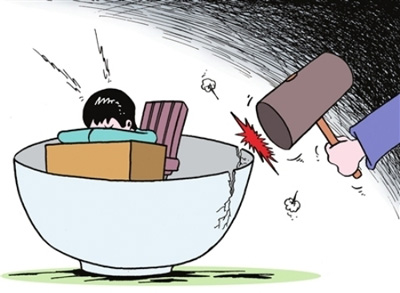Facing up to the difficulties of public sector reform
|
|
|
From China News Service |
China has finally made up its mind to reform its public institutions. The central government has set clear goals and mapped out a timetable for reform.
Public institutions are a key constituent of socialism with Chinese characteristics. In some senses they are one of the most representative systems with Chinese characteristics. The value of public institutions is that they provide professional public services to communities. But for historical reasons, many Chinese public institutions have been criticized for overstaffing and inefficiency. They have found it difficult to adjust to the needs of the market economy and some of them have become obstacles to the coordination of economic and social development.
While a fundamental reform of public institutions is a necessity, we have to recognize the difficulties involved. We should not take it for granted that reform will be easy. As was the case with enterprise reform, reform of public institutions is easier said than done. In many ways it may turn out to be even harder than enterprise reform. Because after all, enterprises are profit centered. No matter whether people welcomed reform or not, there was a shared consensus that reform was needed. Public institutions are different. They wear the mantle of public interest and are funded by the government. They not only lack the motivation to reform, some even hope to regress to an earlier administrative system. In fact, China first attempted to reform public institutions decades ago. The reason for the slow progress, and even regression in some areas, was not only because the plans were wrong but because they ran up against resistance from entrenched interests.
 0
0 







